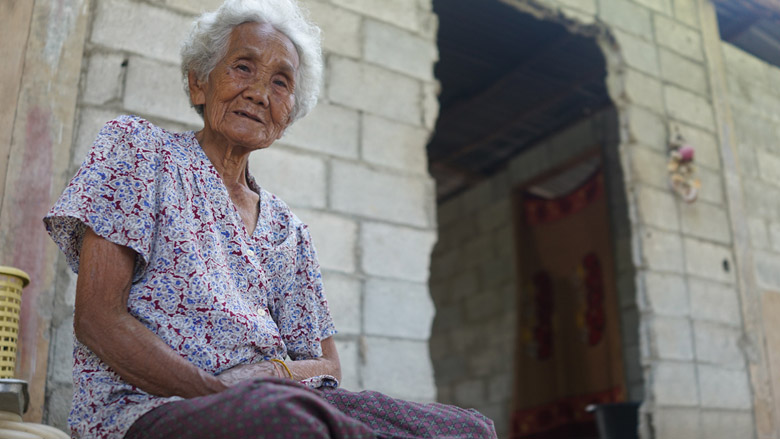Key Findings
Although the country’s publicly-run health insurance schemes cover all Thai citizens and provide relatively comprehensive benefits coverage, significant gaps remain in non-medical costs and social support to facilitate access to and utilization of health care services. These gaps particularly affect poor elderly individuals and the oldest members of this group (those over 80 years old), especially the ones who live in rural areas.
- Thailand achieved universal health coverage in 2002, and all Thai citizens are covered by one of the three publicly-run health insurance/benefits schemes.
- The health benefits scheme helped increase access to health services and reduced the financial burden and risks of impoverishment associated with health care expenses.
- The lack of caretakers and the lack of support for non-medical costs such as transportation to health facilities, however, is making access difficult. This is a particular plight for the elderly poor in Thailand, especially those in the oldest age group who are over 80 years old and living in rural areas.
- The lack of public and affordable transportation is the most important barrier to accessing health services among older people in rural areas, especially those who do not live near major highways and roads on which public buses operate.
- Those who are poor and live on monthly allowances from the universal social pension alone are the most vulnerable. They do not have money to pay for travel to health facilities when they’re sick, let alone for food and residence if overnight stay is required.
- Another key reason that contributes to low utilization of health services among older people is the dependency on caretakers and relatives to bring them to health facilities. The number of the elderly living with adult children is on the decline, from nearly 80% in 1990 to less than 60% in 2011.
Various policy options can be considered to enhance access to healthcare services and reduce catastrophic health expenditures for older people.
- Local Administrative Organizations (LAOs) can play an instrumental role in promoting access to health services for the elderly, including providing health emergency vans for the communities and arranging transportation for the elderly poor to access health facilities, as necessary.
- Village Health Volunteers (VHVs) are instrumental to the provision of health-related support to the elderly in communities, particularly through home visits as well as organizing physical exercise and health education sessions.
- Identification and targeting of the poor should be revisited in order to provide needed health-related benefits to those that need it most.
- Outreach and home visit services by health professionals, as well as measures to facilitate travel to health facilities by the poor elderly when needed, should be promoted.

